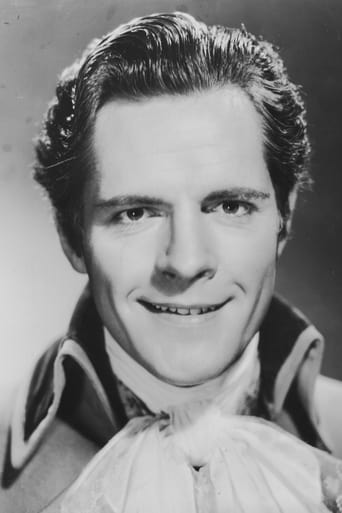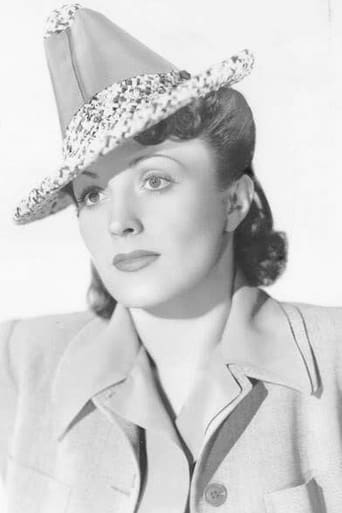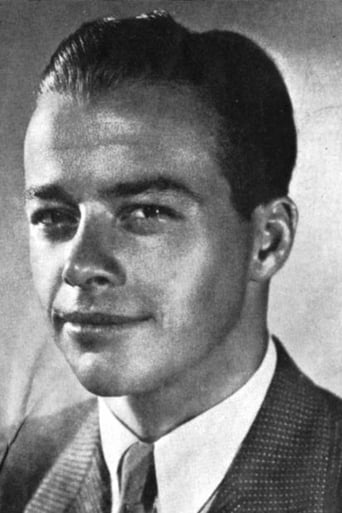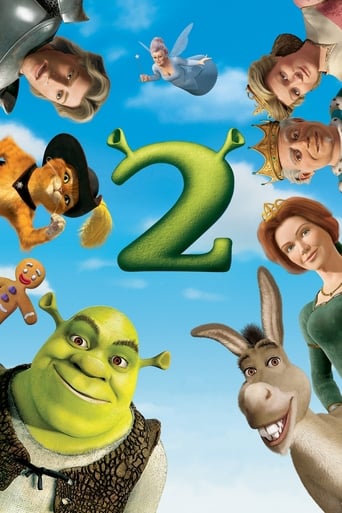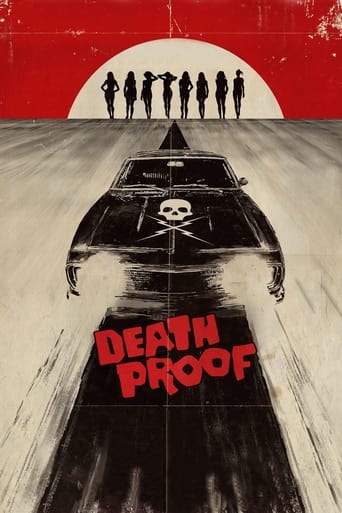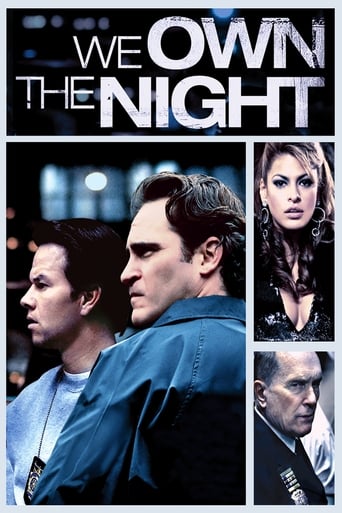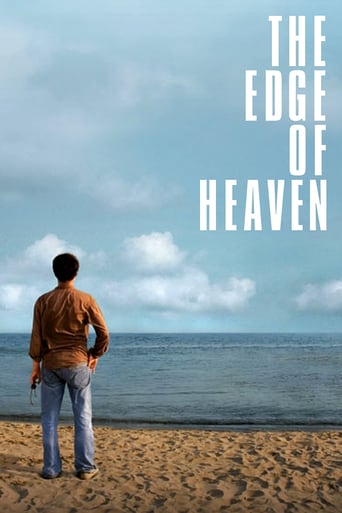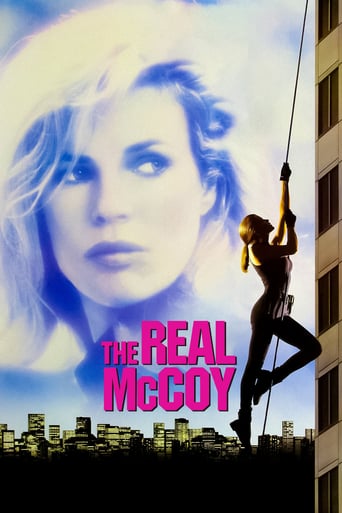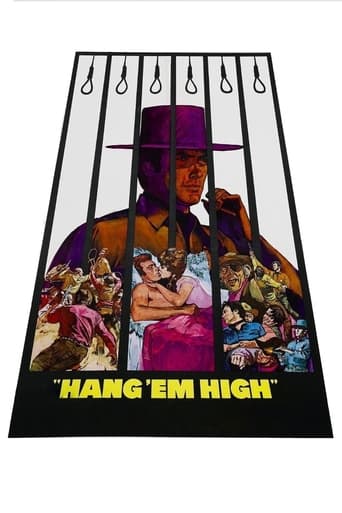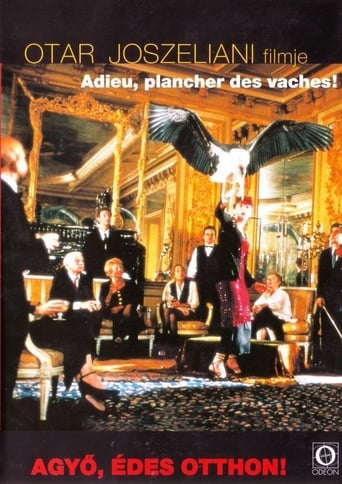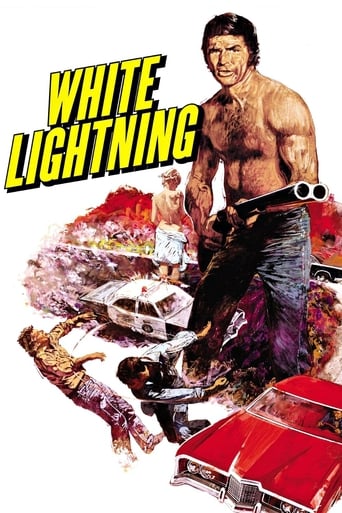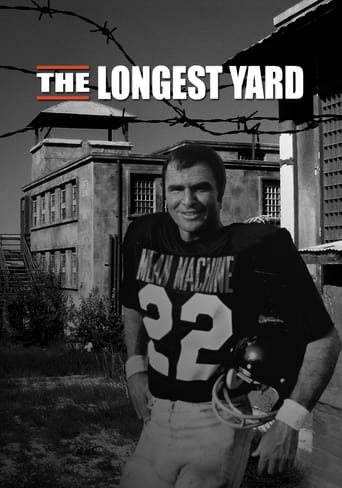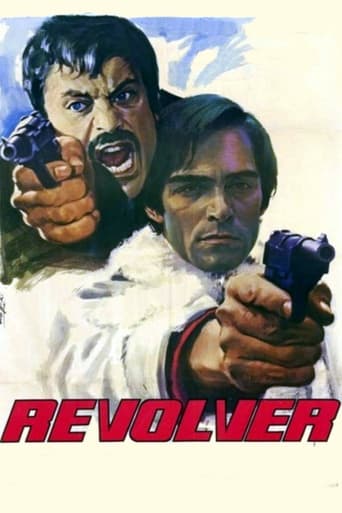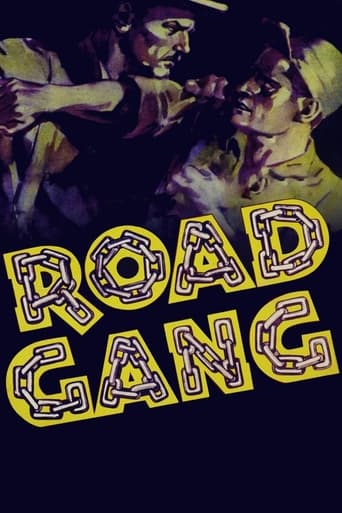
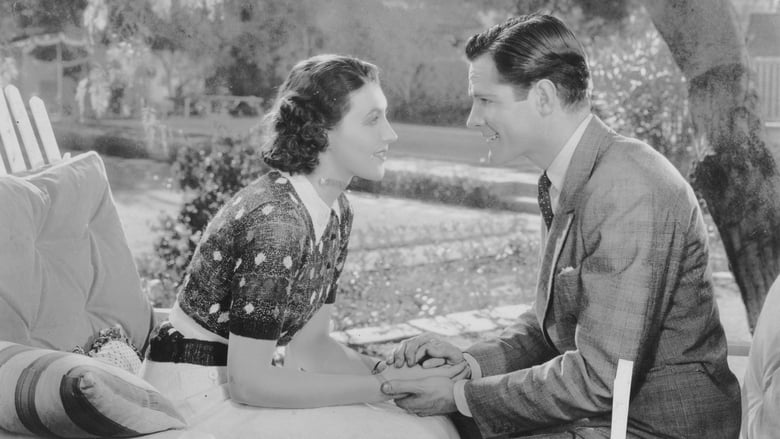
Road Gang (1936)
A crusading young reporter planning a series of articles about a corrupt politician is framed for a crime and sentenced to serve five years at a prison farm.
Watch Trailer
Cast


Similar titles
Reviews
While Donald Woods doesn't end up a fugitive from a chain gang in this similar "B" follow-up to the classic 1932 Paul Muni drama, he does fight injustice with the same fervor, in this case a powerful man who happens to be the stepfather of the woman he loves. Going against the grain of Henry Neill's desire for political power, Woods ends up being accused of grand larceny, and just as he is being put into prison, an escape attempt erupts and Woods and pal Carlyle Moore Jr. are forced into it against their will. This couldn't please O'Neill more and fake defense by the attorney he hires for them puts them on a chain gang, first on the rock pile, and later for Woods the darkened confinement of a mine which he is warned means certain death. Supportive prisoners and the determination of girlfriend Kay Linaker to get him off results in a confrontation between the prison officials under O'Neill's thumb and the men trapped in the mines with teargas surrounding them.Certainly not in the class of the earlier "A" film which was considered by some to be one of the first film noir, "Road Gang" is still pretty gripping considering its low budget and lack of "A" list stars. Woods never looks like he's been working on a chain gang, always with hair perfectly shaped and certainly no dirt on his face. There's a frightening scene of an escape attempt that results in a horrific death, and a funeral sequence of the victim repeats "Swing Low, Sweet Chariot", earlier heard being sung by unseen black members of the gang, obviously segregated from the white prisoners. So while this might not be as gripping as the film that obviously inspired it and the string of other Warner Brothers films bemoaning the fate of those forgotten men during the depression, it has some moments that are still pretty intriguing. Other than O'Neill, the villains seem pretty black and white, however, without the shades of gray that make them seem more human and thus much more realistic.
This film was made by the B-movie unit at First National/Warner Brothers. Because it's a B, it only lasts about an hour and stars a relative unknown, Donald Woods. However, although many folks normally assume that a B-movie is synonymous with a 'bad movie', this is DEFINITELY not the case with this movie. Thanks to exceptional writing and direction, the film sure satisfies.This film is from the social reform era in Hollywood. Many films were made by this studio which questioned the penal system--such as "I Am a Fugitive From a Chain Gang", "Mayor of Hell", "20,000 Years in Sing Sing" and "Angels With Dirty Faces". In this same tradition is "Road Gang"--a film not just about government corruption but corruption in the chain gang system.A crusading reporter has gotten on the wrong side of a bunch of crooked politicians. They try to bribe him to keep his mouth shut but he vows to bring down the corrupt officials. So, shortly after this meeting with the crooks, this reporter (Woods) is convicted on trumped up charges along with his friend. They are sent to a brutal chain gang--one that is run by people working for the same crooked machine. The plan is to work the two to death so that they never can have a chance to publish anything. And, when the newspaper man tries to smuggle out a story about the brutality, he's sent to an even worse place--a place where they have no intention of allowing anyone to see him again. What's next? See the film.This film works on so many levels. The dialog is great, the plot works very well and the film really gets its point across. On top of that, it has a really good ending. This film has it all--and is better than you'd ever expect from a tiny-budgeted movie.
A reporter uncovers a network of corruption that extends to the penthouses and prisons of a southern state.MGM may have gussied up the Depression era with glamorous escapism, but not so Warner Bros. WB liked to say their stories were ripped from the headlines of the day. Their writers operated from street level and not the penthouse top, as this programmer clearly shows. Prison conditions could be abominable at a time when tax monies had dried up along with businesses. Thus prison movies like the best known one, I Am a Fugitive From a Chain Gang (932), were popular with straitened audiences of the day.There are many good touches in Road Gang—the pin-pricked message, the tumbling coal stope, the artful safe-cracker. Note too, how the scheme reporter Larrabee (Woods) uncovers goes all the way to the top. I'm sure audiences of the day enjoyed indicting the rich and powerful. Nonetheless, the movie lacks the fire needed to lift it from the merely routine. Woods is sturdy and likable, but lacks the intensity needed to drive the plot in a memorable way. Also, that superb villain Charles Middleton (mine boss) curiously underplays his key role, such that no sparks are lit there, either. My guess is that director King was not much engaged with the material. His story direction is competent, but nothing more. Thus the narrative unfolds in interesting but not gripping fashion, which I suspect is why it's omitted from Maltin's film guide. Too bad WB didn't get Cagney for the lead role or Mike Curtiz to direct it.
The was one of many Warner Bros. movies of the 30's about abysmal prison conditions and social injustice due to political corruption. It's a B picture without any big stars, but easy to watch, with Donald Woods as the reporter framed by Joe King and Henry O'Neill for trying to expose their corruption. I had a hard time accepting O'Neill as a baddie since he almost always plays a congenial sort. The prison scenes were excellent, especially with Harry Cording (the guard with the whip) making a terrific heavy. I also enjoyed seeing Marc Lawrence uncharacteristically playing a friendly convict.Since I'm interested in credits, there were two items I noted. First, Joe King's character name is listed as Moett, but the AFI Catalogue mentioned that contemporary reviews listed his name as Metcalfe. His name is altered in the soundtrack at least a dozen times, where the "calfe" is blanked out, and it is very noticeable. Why the change was made is not known. Second, when the police radio dispatcher Frank Faylen reports about jailer Tom Manning's death, he says his name is "Bill Huber." But when you see the name in the newspaper, it is "W.B. Hefflin." Our forgetful filmmakers strike again!


